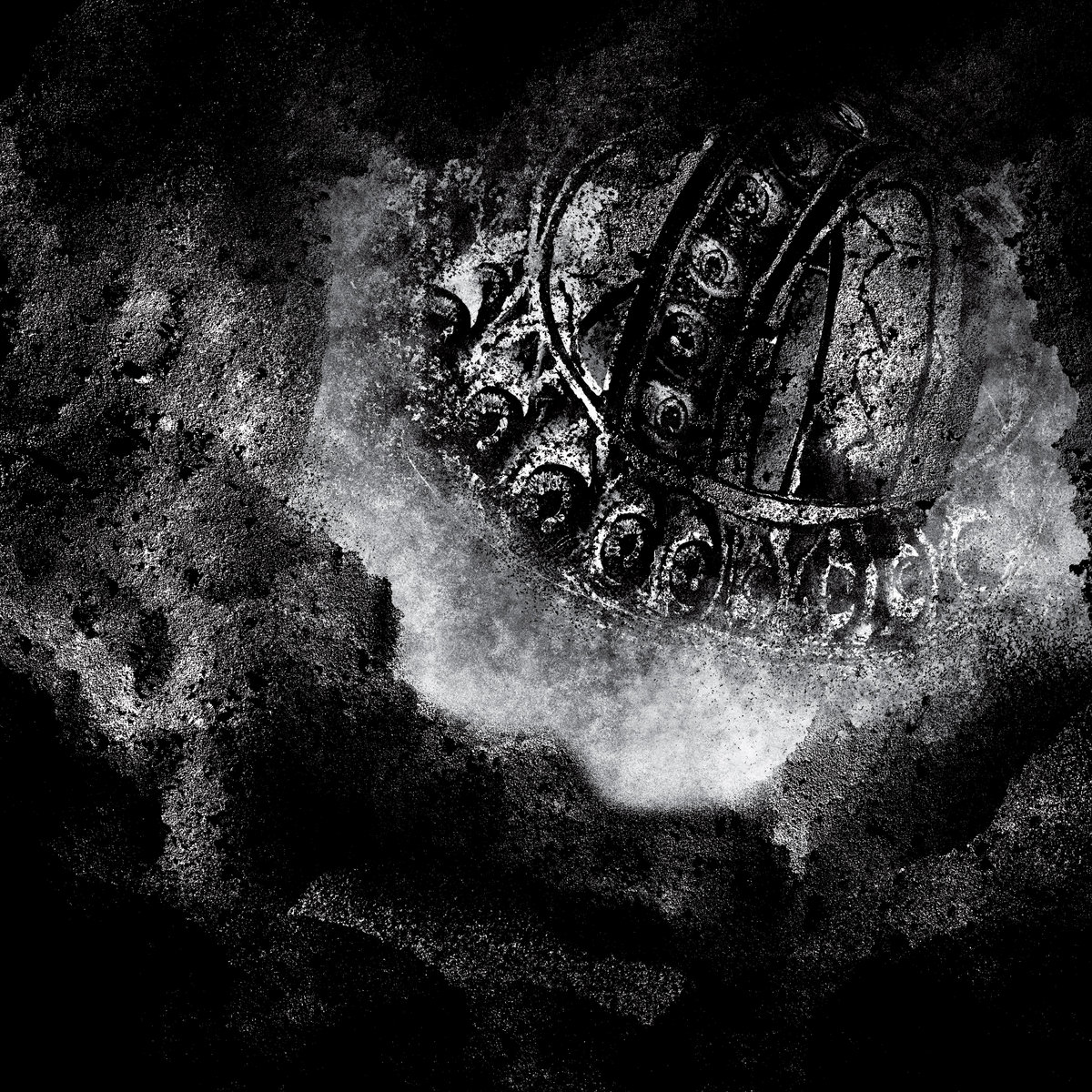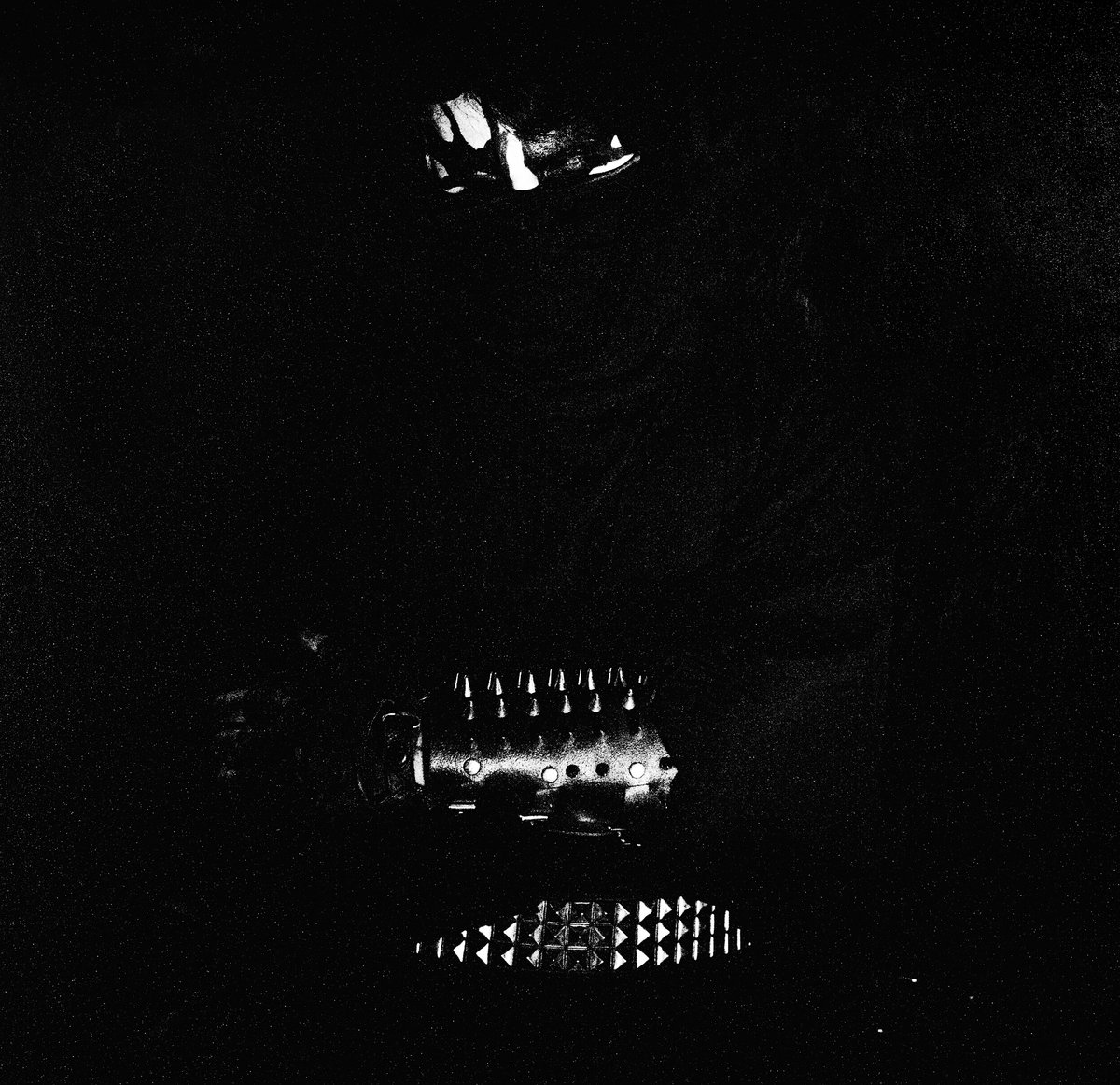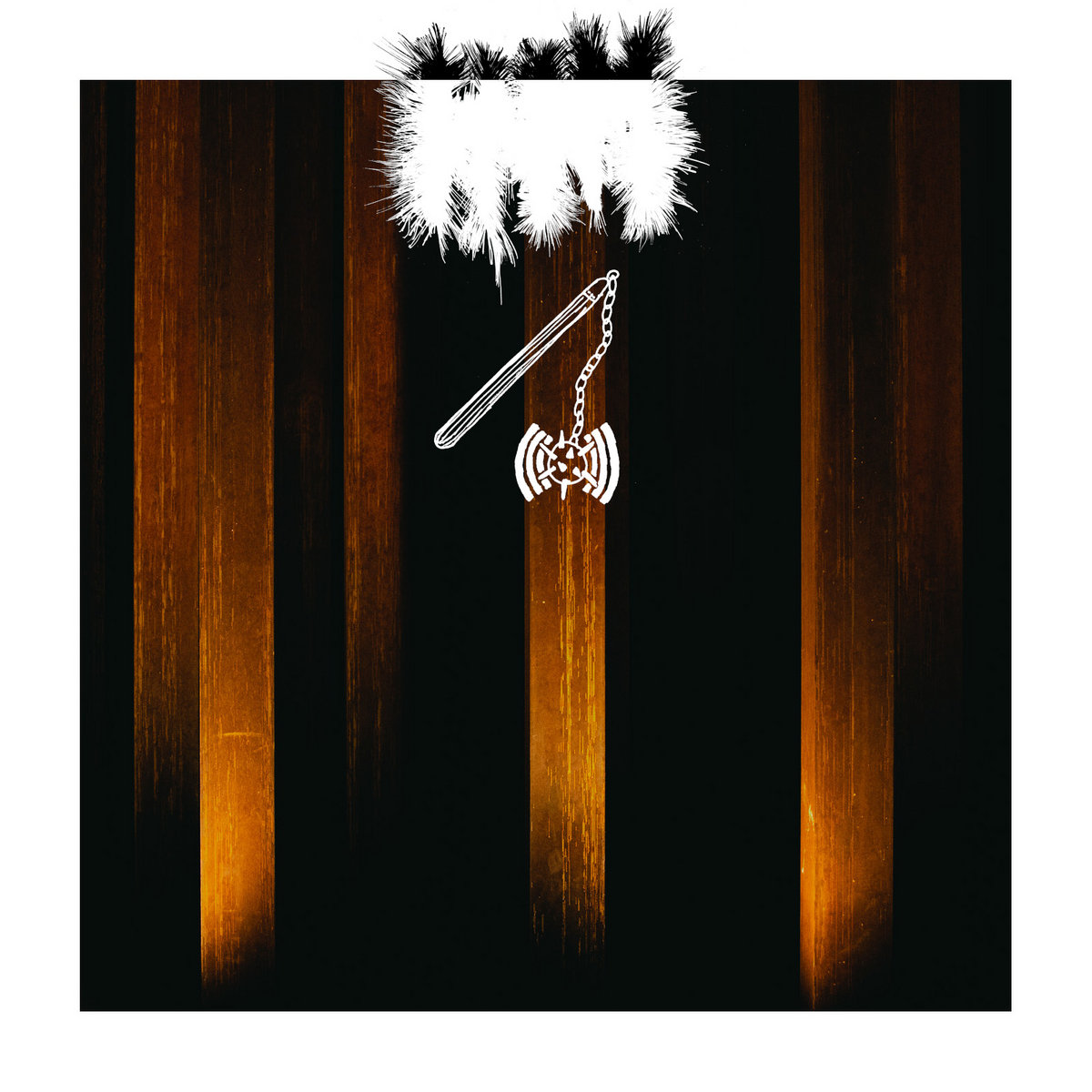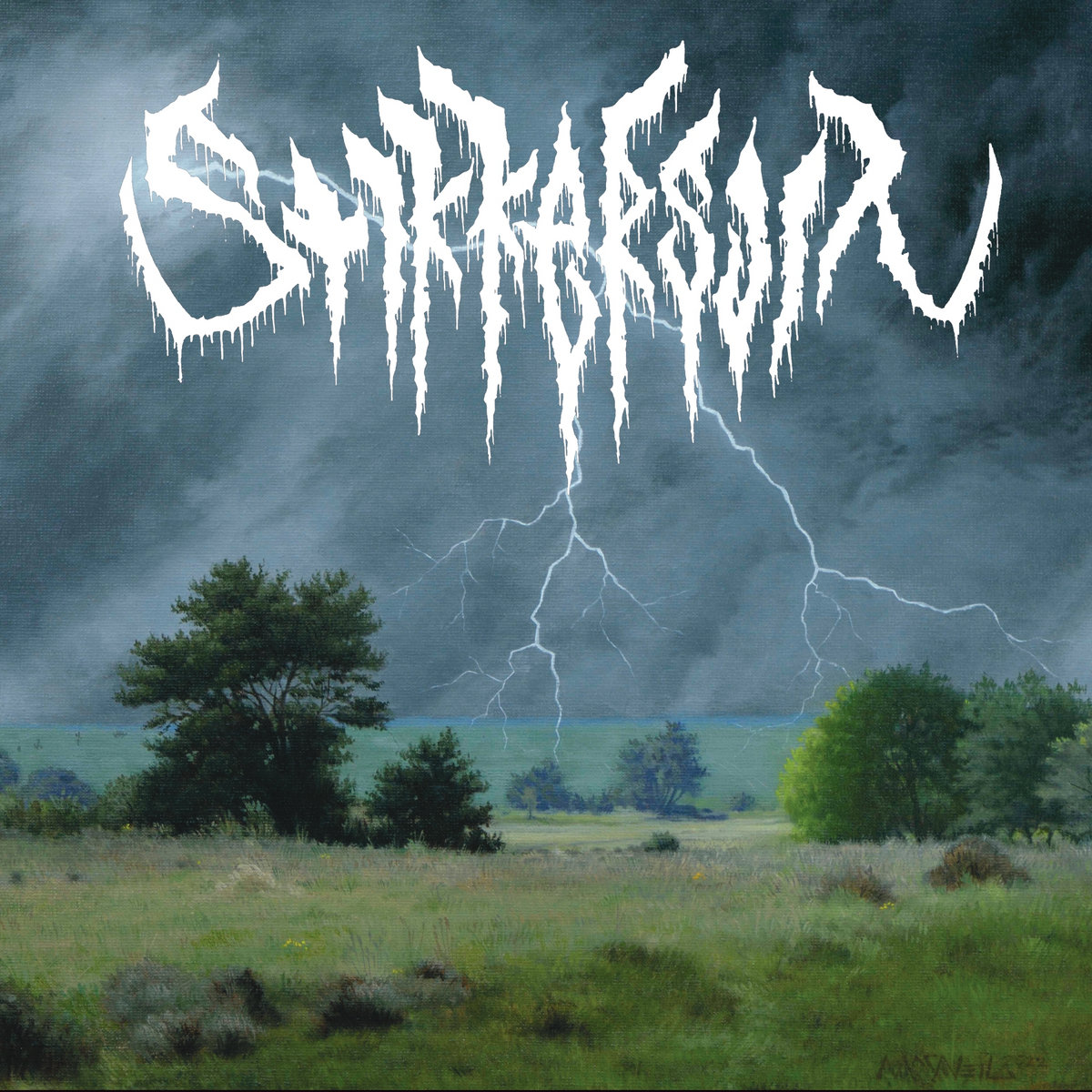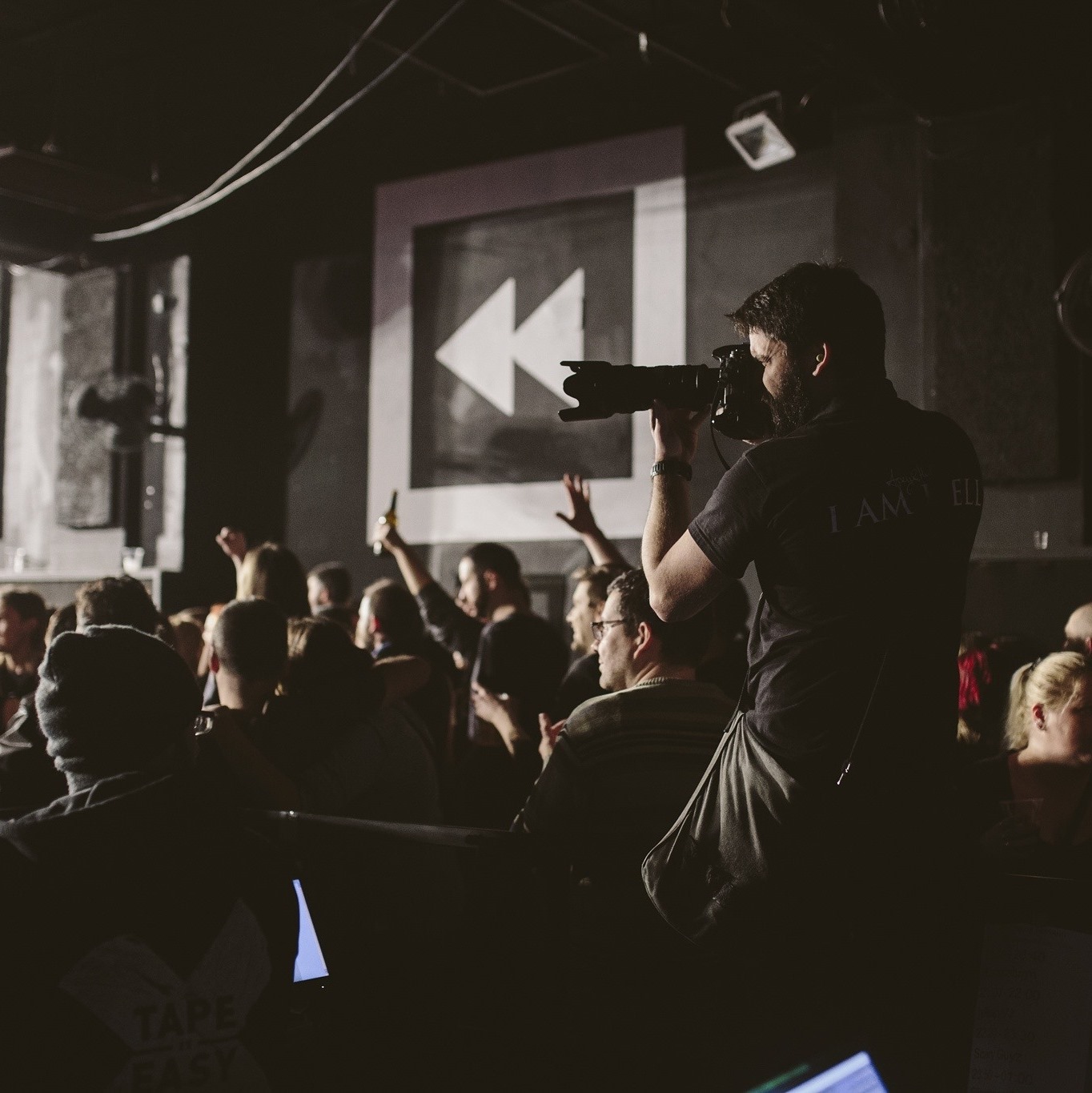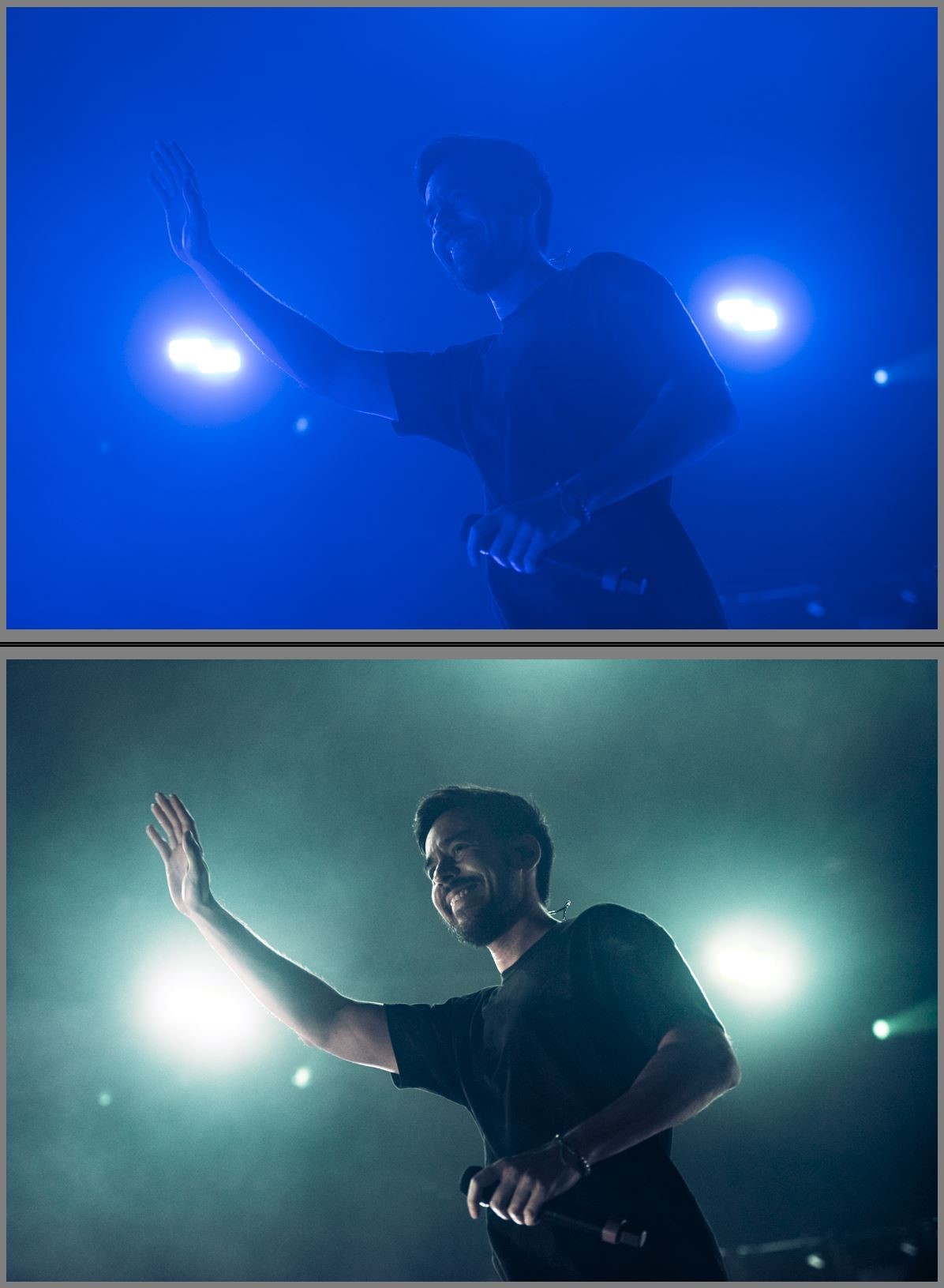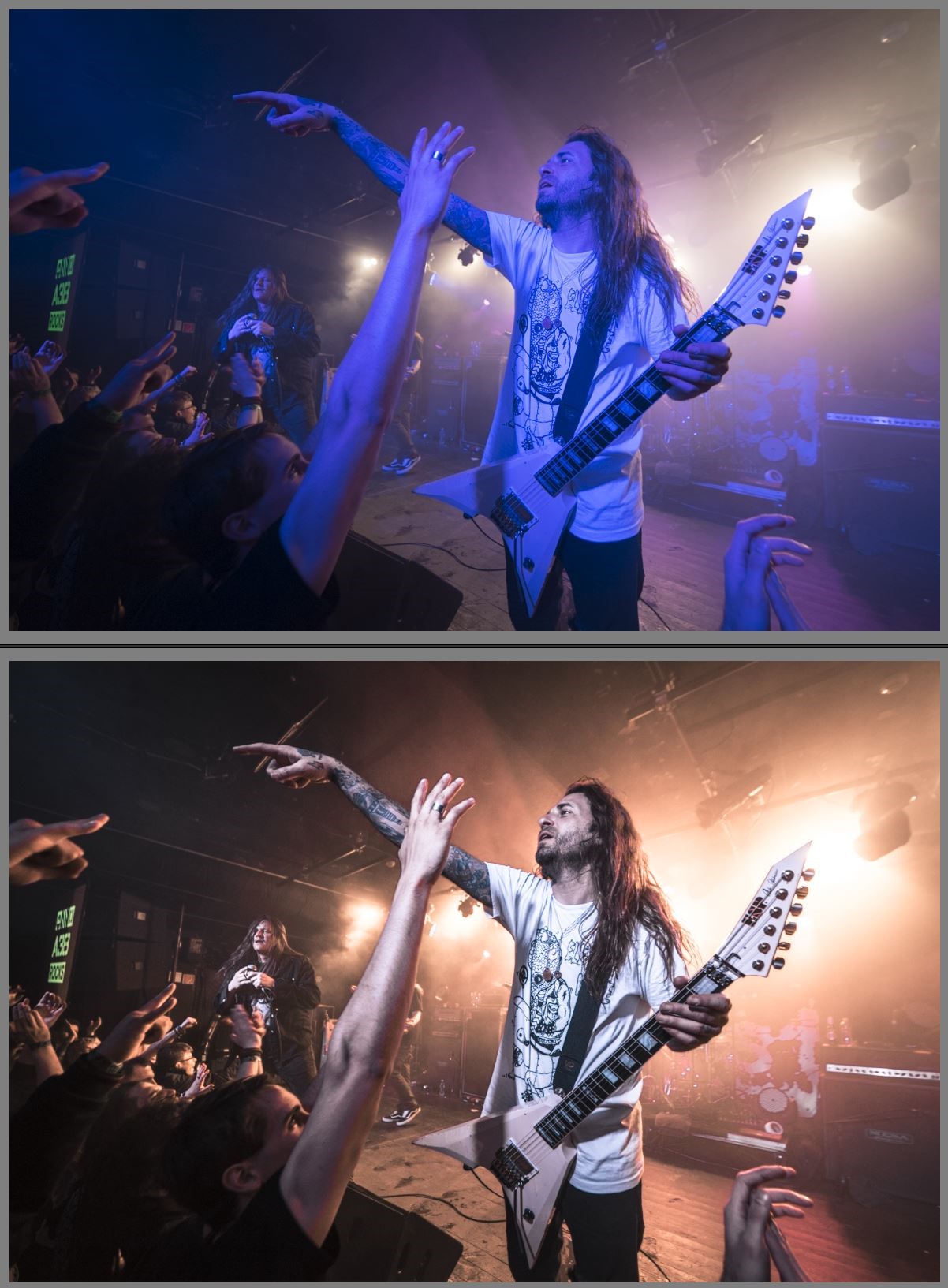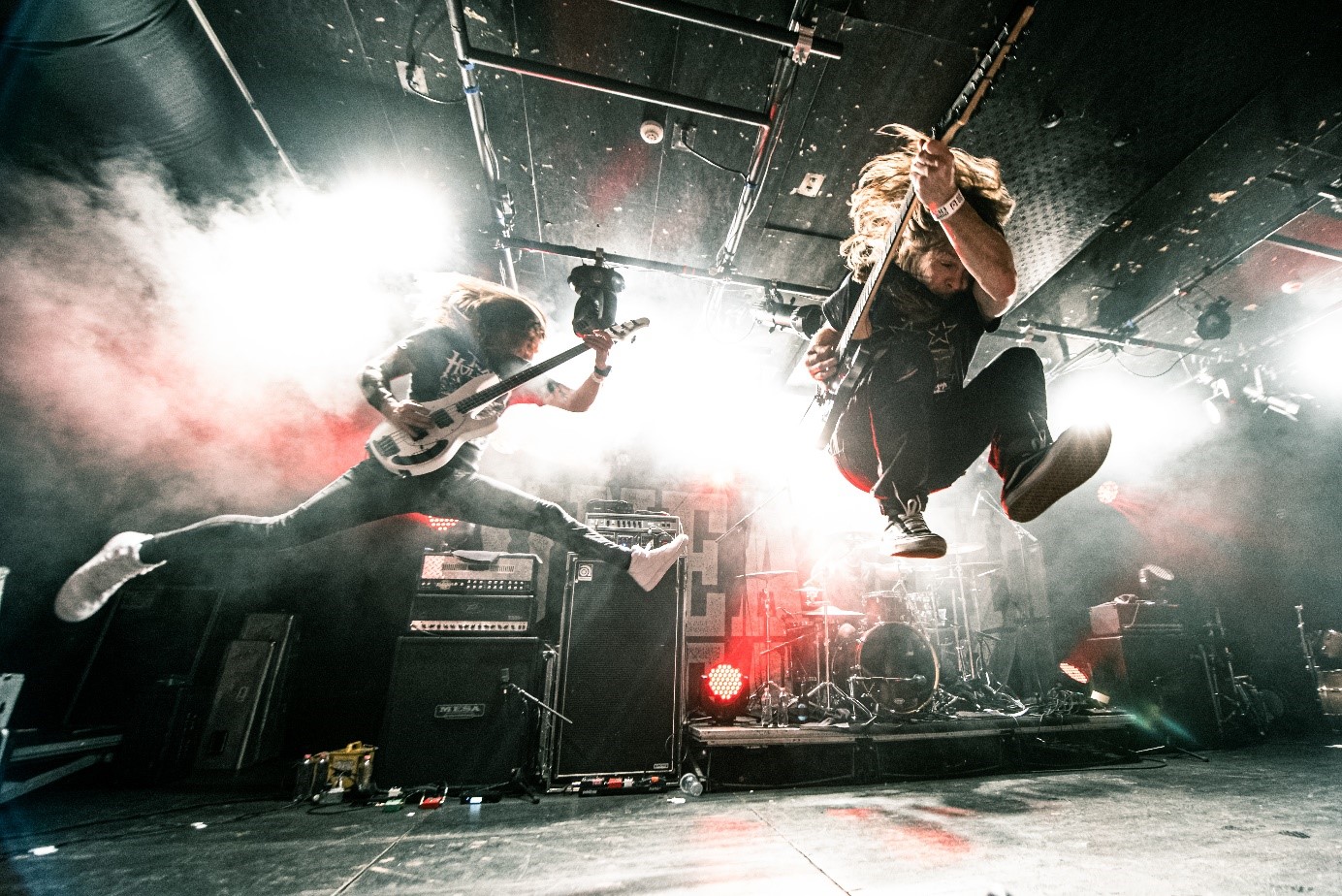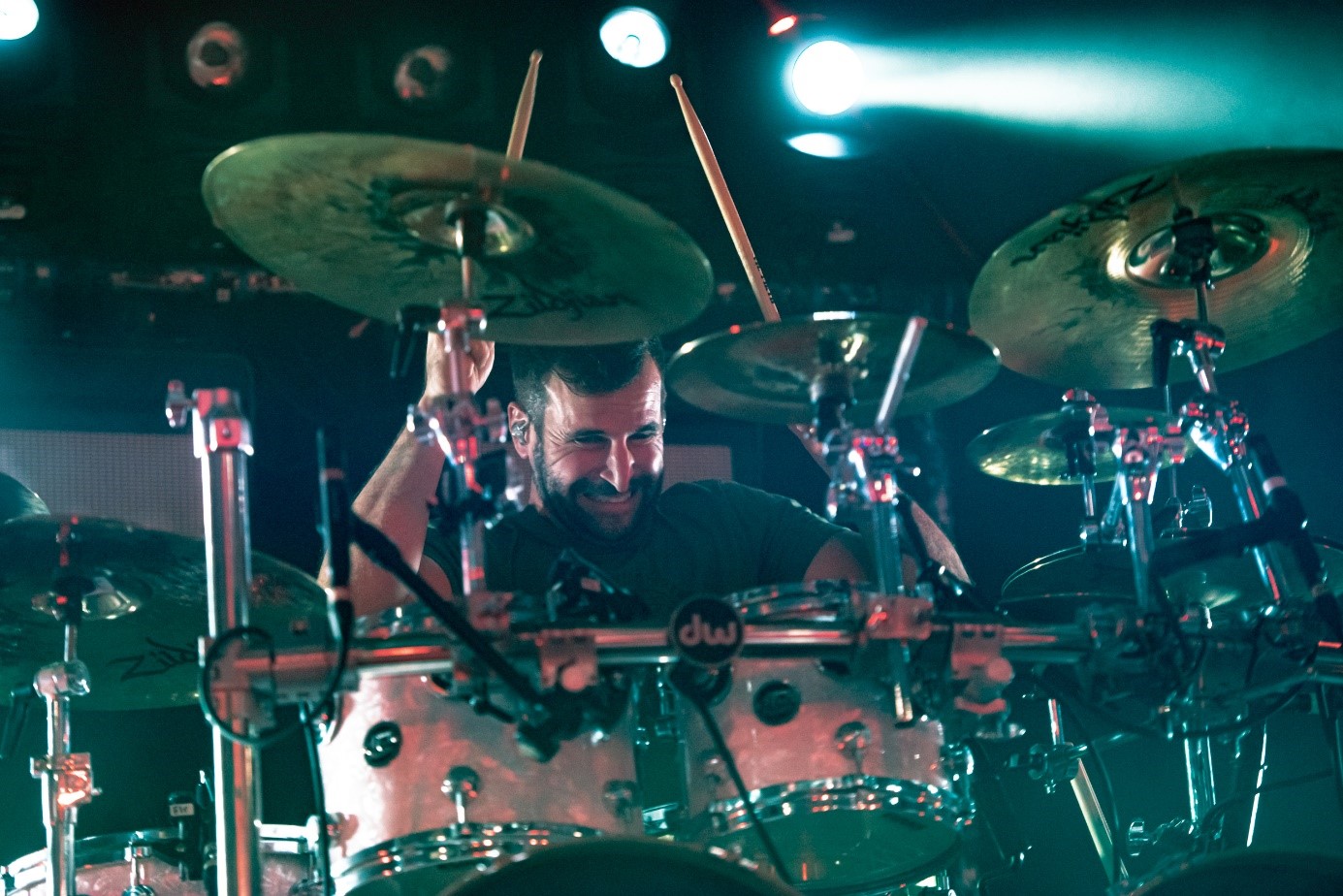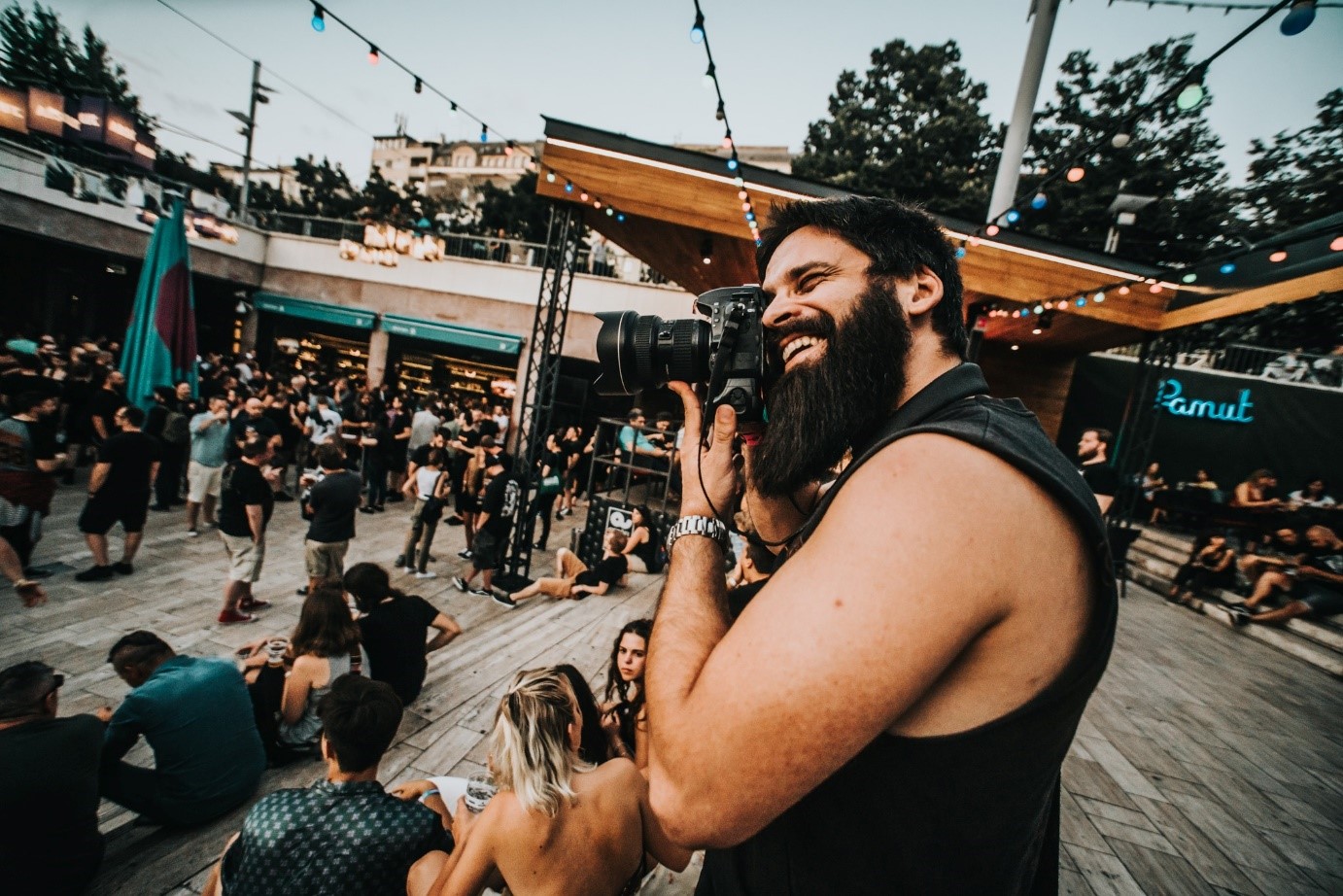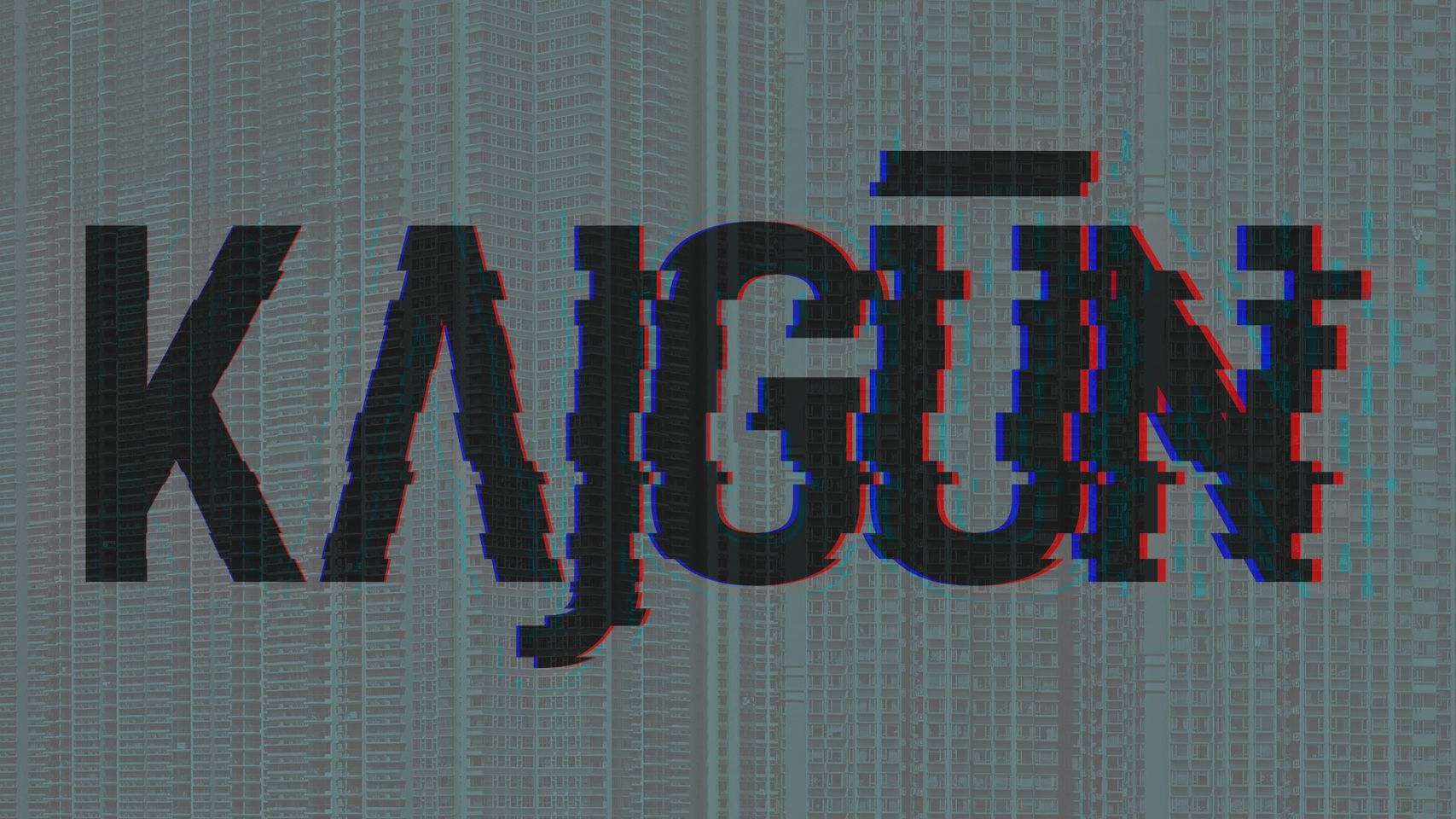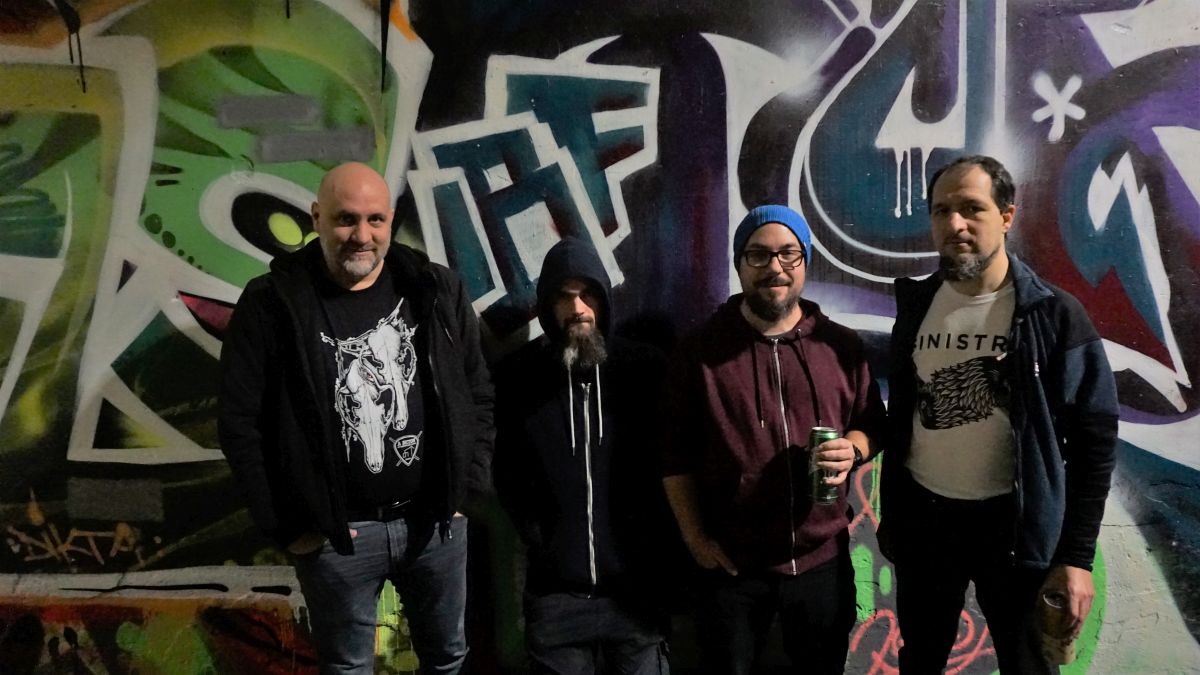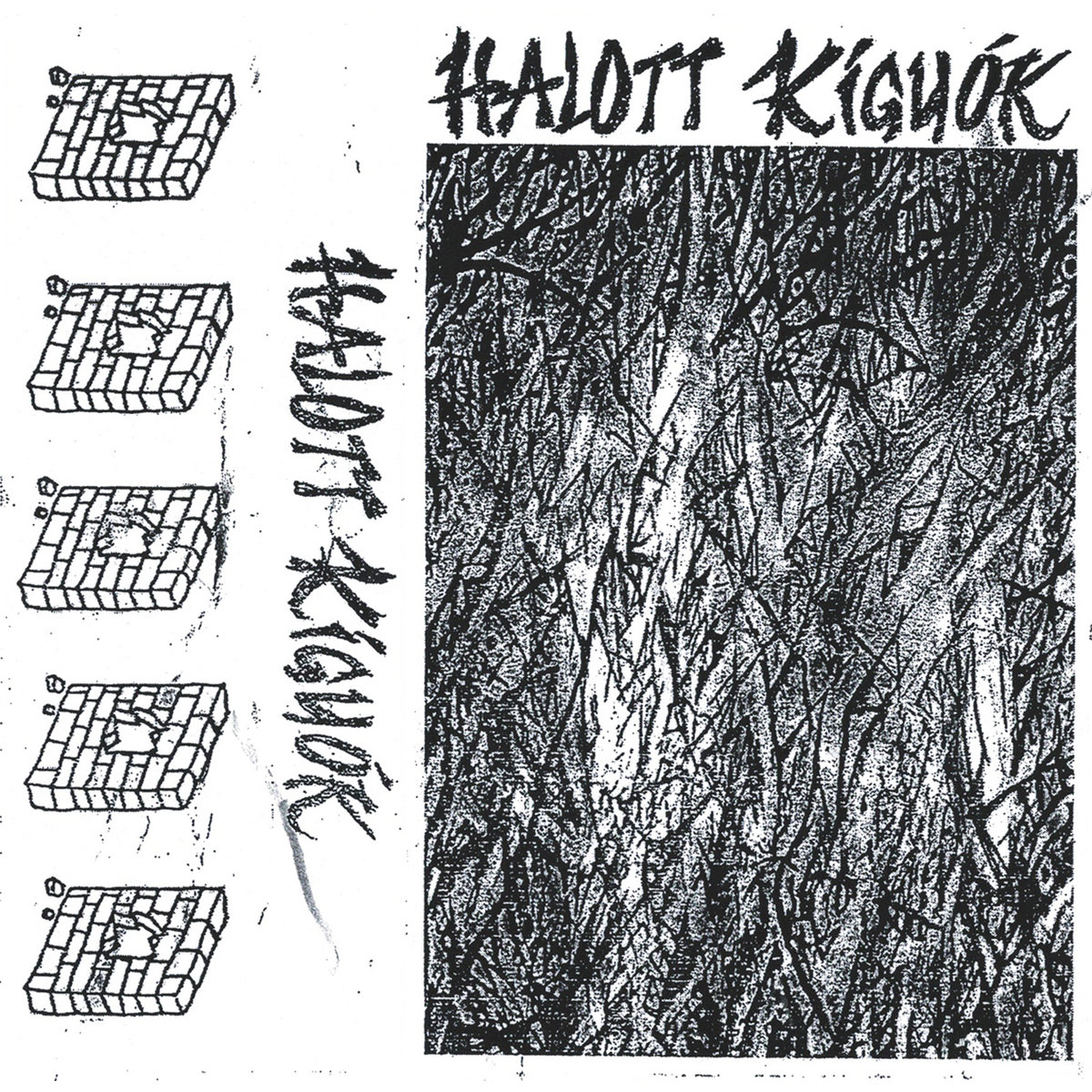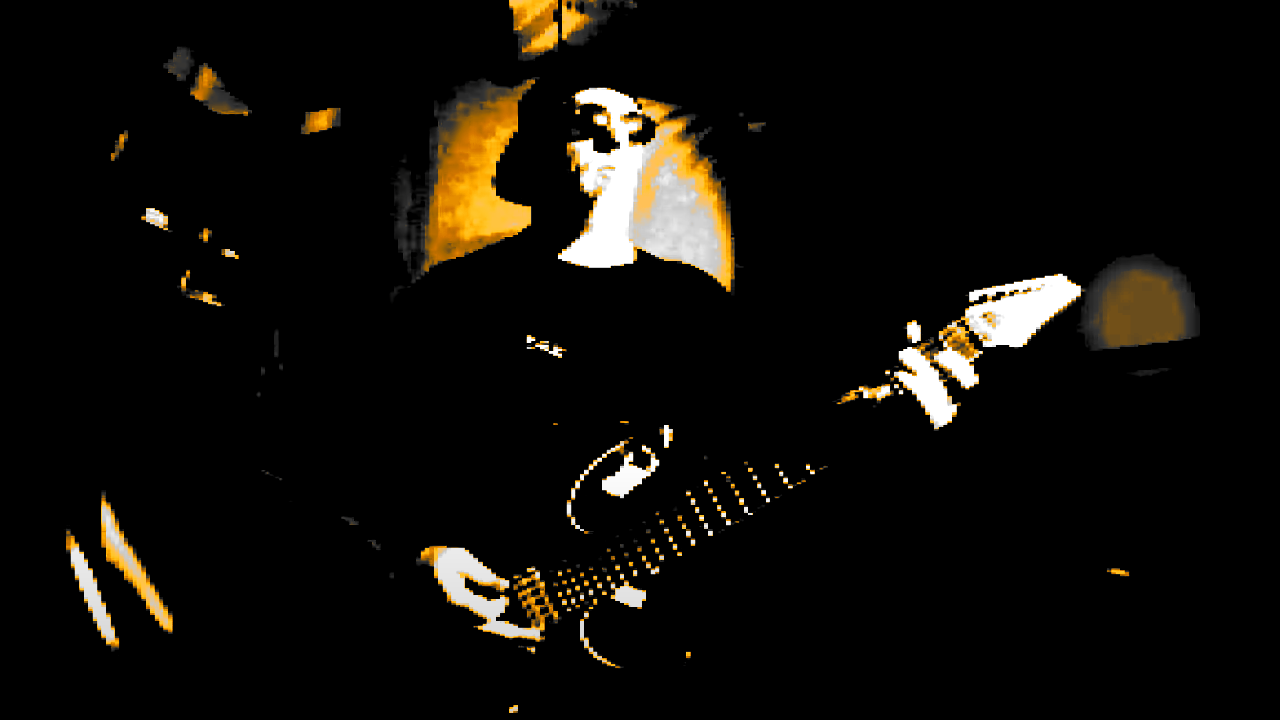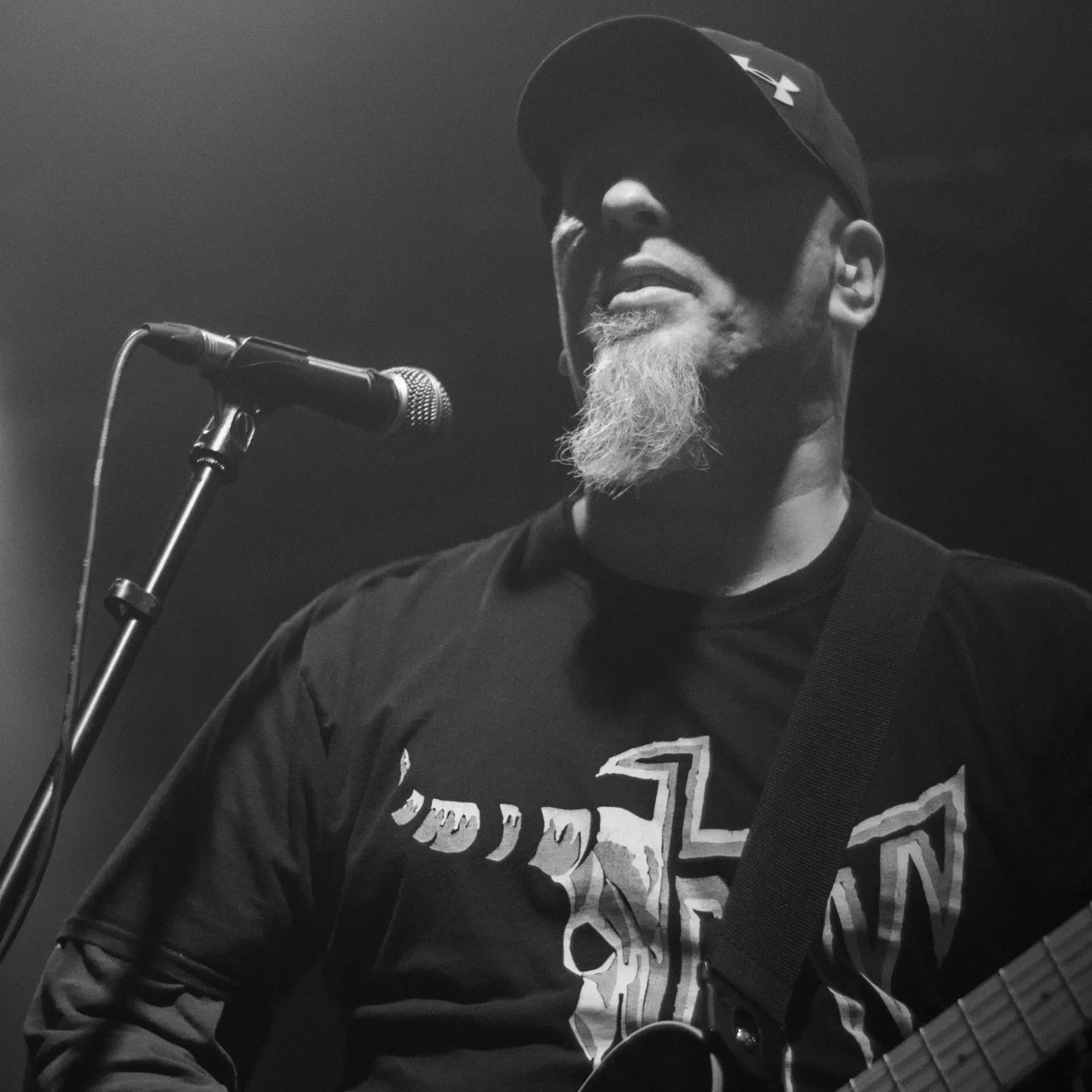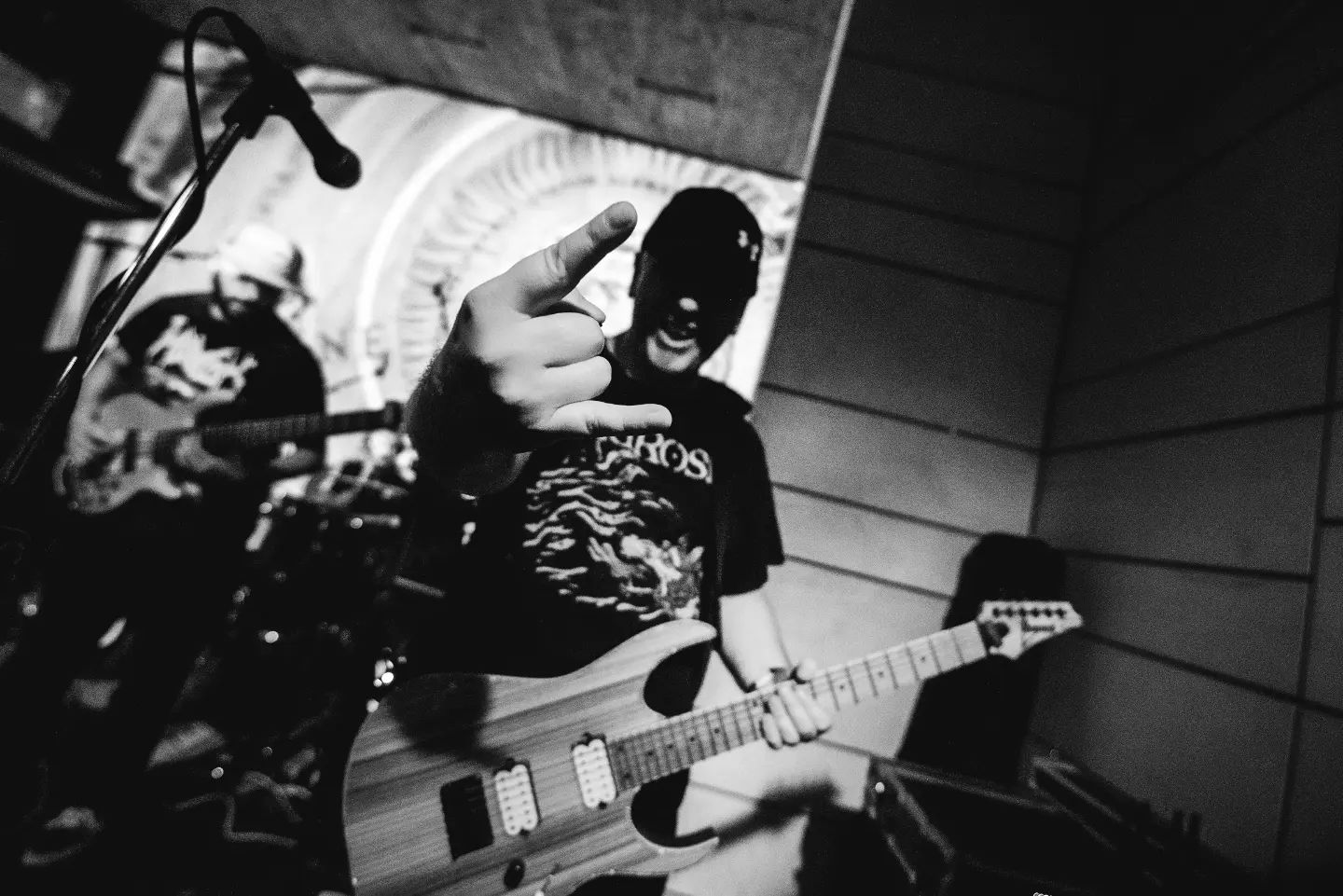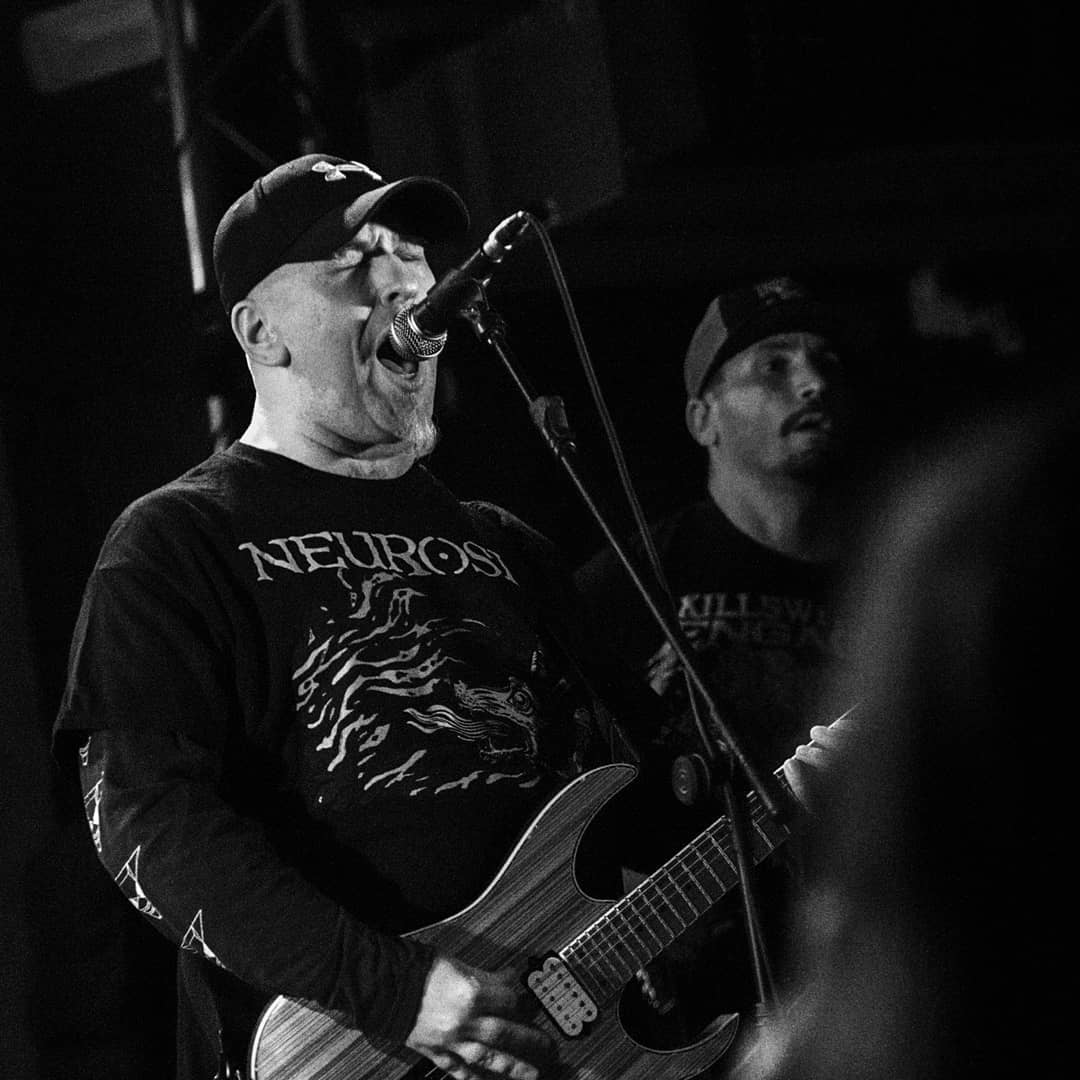<Scroll down for the English text>
Elég impozáns triumvirátust soroltam fel a neved mellett, van még más projekted is?
Nem tudom megítélni belülről, hogy mennyire impozáns, nem is az én dolgom. Annyit tudok csak hogy motivált vagyok, és hogy remek dolog tervezni és haladni A pontból B-be. A párhuzamos projektekkel kapcsolatban az a jó, hogyha az egyik beragad, a többivel akkor is lehet haladni.
Szerencsémre, egy csomó másik projekttel is dolgozom ezen a hármon kívül. Például a Diabolus in Musica ami az Ørdøg akusztikus elágazásaként indult, hamarosan saját dalokkal készül albumot felvenni. Ott van a Graphite 3,6+ ami egy kocka trió, Vincenzo barátom vezetésével, aki egy legendás
demoscene zenész, illetve Suby barátommal, aki pro sim racer és a gitáros társam a SIDRIP Alliance nevű C64 cover zenekarban. Ezt is demoscenerekkel csináltuk, jelenleg passzív, csakúgy, mint az RKH
rap-metal projekt, ami a 90-es évek elején alakult és tíz évente feltámad. Ezek lassabb projektek, de mindig forralunk valamit.
Mindezeken kívül, itt-ott belelóg az ujjam dolgokba, nevesítve vagy nem. Például én vagyok a négykezű gitáros légy a Chicken Police című játékban. Nem unatkozom.
Mesélj kérlek kicsit a NecroPolo-ról! Mit takar ez a projekt, honnan és merre
tart?
A NecroPolo a legrégebbi projektem, ami 1989-re nyúlik vissza. Egy Commodore64 számítógéppel és egy hordozható, több sávos magnóval kezdődött minden. Szerintem azok közül, akik ismernek mint gitárost, kevesen tudják, hogy az első hangszerem nem a gitár volt, hanem egy számítógép. A korabeli
C64 zeneszerzők pont ugyanolyan hatással voltak rám, mint a meghatározó rockzenekarok abból az időből.
A 90-es évek eleje nekem arról szólt, hogy próbáltam belerázódni a C64 zeneírásba és mellette a gitározásba. Ez utóbbit az akkori, masszív és változatos rock és metal scene felhozatala indította el. Elég korán elsodortak a súlyosabb zenék. Valószínűleg ez a NP projektben is lecsapódott. Néhány év alatt elegendő mennyiségű C64 zenét csináltam ahhoz, hogy szerencsét próbáljak a demoscene-ben, ami végül nem járt sikerrel. Részben azért, mert a közvetlen közelemben senki sem fejezett be semmit, amibe belekezdett, és részben a "nagy" demoscene lekezelő, nagyképű, elitista beállítottsága miatt.
Világéletemben utáltam a sznobériát. Ennek a szöges ellentéte volt abban az időben a barátságos underground rock / metal közösség, ami egy szinten kezelt mindenkit, szóval végül kikötöttem '92-ben egy rendszeresen koncertező zenekarban. Bedobozoltam a C64-et. Ettől függetlenül, C64-en született riffek, részek és ötletek folyamatosan szivárogtak át a zenekari projektjeimbe, ez a tendencia ma is tart.
Szóval, 15 év szünet után akkor poroltam le a C64-et amikor közeledett a 20. zenészi évfordulóm 2009-ben. Annyira mélyre visszaástam a gyökerekhez, hogy végül újra elkezdtem C64-en zenét írni, és azon nyáron csatlakoztam a 8 bites demoscene-hez is ami szerencsére addigra egy remek közösséggé nőtte ki magát. Az itt megélt jó élmények hatására úgy döntöttem, hogy nevesítem és rendszerezem ezt az ősrégi projektet.
Ősi floppy lemezek és kazetták kerültek elő. Évekbe telt minden használható részt, demót és félkész zenét megcsinálni és befejezni. 2015 végén zárult le ez, amikor is a visszatérés óta keletkezett új zenékkel együtt három tematikus kollekcióba szedtem ezeket (Darth SIDe, Voyage Eclectique, Zeros as Ones), 20-30 C64 trackkel albumonként. Utána persze jött az a kérdés, hogy: oké, de innen hogyan tovább? Az egyik, audio kazettára rögzített régi demo ötletei alapján elkezdtem kísérletezni a C64-gyel modern többsávos felvételeken. Hangszerként használtam ugyanúgy, mint mondjuk, mint a gitárt vagy a dobot. Azóta 3 ilyen album jelent meg (Aenthera 2016, Hypergame 2017, Destronnauth 2019), ezeken C64 adja a sound gerincét. Jelenleg a negyedik album készül, NecroLepsy címmel. Sok dolog fut mostanában párhuzamosan, ezért ez egy kicsit hosszabb szülés lesz most,várható megjelenési dátumot inkább meg sem próbálok mondani.
Milyen/mekkora NecroPolo nyilvánossága, milyen közeget mozgat meg?
Egyáltalán nincs agresszívan promotálva a produkció, szóval lövésem sincs, hogy mekkora csoporthoz szól. Az egyetlen konkrétum az, hogy a napokban iratkozott fel a csatornára a 666. néző, ami azért eléggé metal. A streaming statisztikák alapján csináltam nemrég egy videót a nézők országairól százalékos arányban lebontva. Nem kis meglepetésemre azt láttam, hogy csak 10% magyar. Ezért van az összes platformon a kommunikáció angolul.
A hallgatók összetételét a hozzászólók kérdései alapján tudnám nagyjából leírni. Chiptune kedvelők, C64 megszállottak, metalőrültek, gitár tech mániákusok, retro fanok, demoscenerek, undergrounderek. Kívülállók, mint én.
Hogy zajlik a kreatív munka ebben a projektben? Milyen témák alapján írsz, mik a hangszerelés
főbb pontjai?
Valószínűleg a legnagyobb különbség köztem és egy nem-kocka gitáros között a zeneírási
gyökerekben található meg. Mivel ezt az egészet én a C64-en kezdtem el felfedezni, a gép limitációi miatt (3 csatorna, 4 hullámforma, és szevasz) eltökélt minimalista lett belőlem. A mai napig 3 részre bontva értelmezem a zenét: groove (dob), basszustéma vagy riff, melódia. Akkordokban például sosem tudtam gondolkodni.
A másik furcsa dolog a transzponálás és az ütemezés lehet. A legtöbben úgy szokták használni a hangnemet, mint egy horgonyt, az akkord fokokat pedig mint egy térképet. Én egyáltalán nem tartom ezeket szem előtt, ezért gyakran ki szoktam ugrani ebből a keretből. Ez azért alakult így, mert a transzponálás a C64 trackerekben egyetlen egyszerű parancs, amire eléggé rákaptam már az elején, mivel tetszett a feszültség, amit okoz. Az ütemezés szintén ide tartozik, mert elég egy egyszerű összeadás/kivonás parancs és az ütem máris nem 4/4 hanem 5/4 vagy 3/4 és így tovább. Aztán a végén megpróbálom ezen a hullámvasúton összekötni a pontokat a melódiával. Gondolom ennyi év ezen a vonalon egy elég furcsa dallamvilágot tud kialakítani. Egy csomó dolog, ami nem logikus másoknak, nekem teljesen természetesnek tűnik. Maga a zeneírás teljesen kiszámíthatatlan, nem tudom mi fog történni a következő pillanatban amikor nekikezdek. Minden egyes alkalom egy felfedezés.
Furcsa volt ezzel szembesülni amikor a IV. Henrik dráma film átiratának zenéjén dolgoztam tavaly. Szalkai Péter filmrendező barátom mondta, hogy lényegében ez minimalista hangszerelésű C64 zene, csak nem C64- en.
Ami a zeneszerzést illeti, még akkor is ha alapjában véve gitár riffekre alapul az egész, a riffeket nem gitáron találom ki. Ha gitározom, akkor általában villámgyorsan bezárom magam egy dobozba, aminek a fala az, ahogyan játszom és ami kézre áll gitáron. Szóval, hogy ezt elkerüljem, billentyűn születnek a riffek. Szintetizátoron egyáltalán nem vagyok annyira képben, mint gitáron, szóval nekem ez egy végtelen
felfedezés. Néha még ezt is elhagyom és direktben programozom fel az egészet egy C64 trackerben hangszerek nélkül, hogy egyedül a dallamérzékemre hagyatkozzak.
Ami az inspirációt illeti, azt megpróbálom elkerülni, hogy a kedvenc albumaim és előadóim túlzottan belerázódjanak abba, amit csinálok. A zene ugyanúgy absztrakt történetmesélés mint a film, a könyvek, a
versek vagy a játékok, csak más a médium. Inkább ezekből merítek. Például, eléggé megszállott gamer vagyok. Rengeteg zenét inspirált az, ahogyan elvesztem egy-egy game world-ben. Mass Effect, Death
Stranding, Horizon Zero Dawn, Witcher, Cyberpunk2077 vagy Dead Space és a többi, elég sokáig sorolhatnám, egészen a C64 időkig visszamenőleg. Persze olyan is van, hogy valóságban megtörtént dolgokról szólnak ezek a történetek. Hú, szokták ilyenkor kérdezni, de hát ez instrumentális, nincs is szöveg. De minek? Rád vár az értelmezése. Mondjuk meglepődnék, ha rózsaszín csillámpónik
jutnának az eszébe annak, aki meghallgatja. Inkább a sötét oldalról szivárognak át dolgok. Mondjuk, ha világvége, akkor Melankólia és nem az Armageddon. Ha űrutazás, akkor Event Horizon és nem Star Wars.
Ami a technikai oldalát illeti, szerencsés vagyok mivel a 90-es évek vége óta dolgozom
hangtechnikusként. Producerként szintén volt szerencsém több tucat albumon dolgozni, szóval a felvételkészítés, keverés és mastering ismerős terep. Mostanában eléggé minimalista felszereléssel
dolgozom, de minden van kéznél, ami kell, és semmi sincs ami nem. Technikai háttér nélkül eléggé körülményes lenne ezt csinálni, mivel ez erősen technikai sport.
A rig rundown videódban említetted a Judas Priestet, mint példaképet és impressziót. Kik/mik
határozták meg munkásságodat? (előadók, bandák, művészek, filmek, művészeti irányzatok)
Az első tudatos zenei élményem gyerekként a lemezjátszó hallgatás volt otthon. Édesapám
szerencsére olyasmiket hallgatott, amik jól passzoltak egy szépreményű gitáros palántához. Queen, Pink Floyd, Judas Priest, AC/DC, ZZ Top és rengeteg jó 70-es évekbeli zenekar. Aztán 1985-ben kaptam egy C64 gépet és elég gyorsan azon kaptam magam, hogy az ott hallható zenék jobban érdekelnek, mint a játékok. Marting Galway, Rob Hubbard, Matt Gray, Ben Daglish és a többi korai C64 zeneszerző óriási hatással voltak rám, szóval a C64-en ugyanannyit szólt a zene, mint a lemezjátszón. Akkortájt kezdtem érdeklődni olyan elektronikus zene úttörők munkássága iránt, mint Jean-Michel Jarre, Kraftwerk vagy Yellow Magic Orchestra. Ez az egész jól megfért a Star Wars világával és a sci-fi könyvekkel, amit faltam gyerekként.
A 90-es években aztán beszippantott az underground zene. A MTV (Music TeleVision) műholdas csatornának elég nagy szerepe volt ebben. minden vasárnap éjszaka volt két műsor, a Headbanger's
Ball, ami metal és a 120 Minutes ami alter. Az előbbin olyan zene ment, ami tetszett, az utóbbin olyan ami annyira nem, de mivel az összes furcsa zenét belegyömöszölték abba a műsorba, azért ott is előfordult olyasmi, amire felkaptam a fejem. Nem árt némi tudattágítás sosem. Aztán ha megfogott valami, másnap hétfőn már tepertem is a KÁOSZ lemezboltba. Nem tudom, most is több szekrényre való kazettám porosodhat valahol. Végülis, ezek a zenék adták meg az alapot annak, ahogyan ma is játszom. Helmet, Prong, Pantera, Faith No More, Soundgarden, Metallica, Slayer, Sepultura, Neurosis, White Zombie, Alice In Chains, Korn, Devin Townsend, Filter, na meg persze persze VHK és ős-Bikini, ami az itthoni színteret illeti. Napokig lehetne sorolni. Elég gazdag zenei paletta volt akkoriban, ami a filmekkel és a könyvekkel együtt teljesen ki tudott ütni. Ponyvaregény, Gyalog-galopp, Leon a profi, Brian élete, Trainspotting, Aliens, 12 majom, Baraka, Catch 22 ami könyvben is kegyetlen nagy, és persze Douglas Adams és Kurt Vonnegut könyvek minden mennyiségben.
Nagyipari sci-fi rajongó vagyok, gyakorlatilag mindent elolvastam akkoriban, amihez hozzáfértem.
A 2000-es években akadtam bele olyan zenekarok munkásságába, mint a Mastodon, Messugah, Rammstein és Gojira. Olyan zenék, amiket nagyjából velem egyidős arcok játszottak. Amikor pedig nagyiparilag turnézni kezdtünk a Wackorral, ráébredtem, hogy mennyi jó kortárs zenekar van itthon is. Watch My Dying, Isten háta mögött, Superbutt, Neck Sprain, Blind Myself, Subscribe, Remorse, Mytra, Mood, Cadaveres/CDT, Korog és így tovább, ez sem lenne rövid lista, ha végigírnám. Az ezekkel a zenekarokkal kötött barátságok inspirálták az ember arra, hogy végig verjen egy normális minőségű album felvételt ami akkoriban méreg árban ment, leszervezzen egy teljes turnét és így tovább.
Akkoriban, az internet játék volt, az MP3 BSA bűncselekmény, a flyereket papírra nyomtatták
nyomdában és a promóció nem Facebookon történt hanem kezünkben tapétaragasztóval, a hónunk alatt plakát pakkal, és a várost az falak meggyalázástól védő, végig a sarkunkban járó rendőr járőröktől akik elől úgy lopakodtunk sarokról sarokra mint a ninják. Így visszanézve, olyan mintha a múlt században lett volna. Mondjuk, konkrétan akkor volt.
Az elmúlt 10-15 évben a Youtube és a streaming minden gátat átszakított, azt nézel amit akarsz, tartalomáradat van. Ha valaki most kezdi ezt az egészet, viszonylag könnyű dolga van mert a legtöbb promóciós eszközhöz azonnali hozzáférést kaphat és direktben el lehet érni embereket. Minden adott, ami jó a zenei világnak. Ettől függetlenül, általában eléggé üresnek érzem az új dolgokat. Mindennek copy-paste íze van. Persze vannak kivételek. Bírom a Wulfpecket és Louis Cole is egy UFO zseni szerintem. A Polyphia nem az én zeném, de újítók, jár a pont ott is. A Periphery is egy izgalmas projekt. A technikai oldala is. Hangzásban ők vezetik az egész metal csordát, Nolly egy elképesztően jó hangmérnök. Szóval ha valaki kíváncsi rá hogy mi a pálya éppen hangzásban, csak meg kell hallgatnia a legfrissebb albumukat. A következő albumukig mindenki úgy akar majd szólni. Szóval, miután Nolly letépi a pofámat ilyenkor, megpróbálok valami teljesen mást csinálni. Viva underground.
Amikor nem egyedül dolgozol, kik a „bajtársaid”?
A NecroPolo egy egyszemélyes projekt. A teljes zeneszerzési, felvételi és produkciós folyamatot én csinálom videókkal - album borítókkal együtt, bár a negyedik album borító design Schiszler Ádám barátom munkáját dícséri majd. Enyhén szólva sem vagyok egy vizuális művész, viszont jó móka és kihívás. Attól függetlenül, hogy egy emberes projekt, néha persze tanácsot kérek olyan hangmérnök barátoktól, akiknek adok a szavára. Ilyen például Vince "Vincenzo" László sound designer (Witcher III, Project Cars II, Crysis stb), Nóniusz Gábor procducer (Antares, Tündérvese, Riddler stb) vagy Matt Gabnai sound designer (Minotaur, UBIsoft, Epic Games, Cloud Imperium Games stb). Ezek az arcok Mátrixban érzékelik a dolgokat, mint Neo. Technikai nyelvet beszélnek, amit én. Időnként teszteljük egymás mixeit.
A NecroPolo projekttel szöges ellentétben, az összes zenekar viszont ahol játszom, közösségi munka. Ezeket egyáltalán nem csinálnám egyedül. A kreatív folyamat része a tagok közötti dinamika, egyfajta közösségi élmény. Az is fontos hogy jól érezzük magunkat egymás társaságában. Ha nem így lenne,lehetetlen lenne évente 60-80 napot eltölteni egy buszban összezárva.
Ha választhatnál bárkit, kivel dolgoznál együtt legszívesebben? (elsősorban zenére gondolok)
Mivel tech beállítottságú vagyok és elsősorban a technika, valamint az alkotási és produckiós folyamat érdekel, olyanokkal dolgoznék szívesen együtt, akik ebben mélyebben benne vannak, mint én. Nem is igazán dolgozni mennék hozzájuk, hanem beszélgetni, tanulni. Ilyenek például Andy Sneap producer
(Judas Priest, Exodus, Slayer stb), akinek csak olyan anyagait hallottam, amik belevertek a földbe. Vagy a Messugah, ahol mindenki nyakig benne van a sound design-ban is és nem véletlen, hogy olyan korszakalkotóan szól a zenekar ahogyan szól. Vagy Devin Townsend aki, megintcsak egy teljeskörű tech figura azon kívül, hogy elképesztő zenész-dalszerző, és persze még sokan mások. Kíváncsi lennék arra hogy mi alapján hoznak döntéseket, hogy annyira ösztönös-e ez az egész, mint nálam vagy van valami bevált módszerük, amiből tanulni lehet. "Tik-Tak Tik-Tak öregszel", ahogy a Rammstein mondta: Egyre
hatékonyabbnak kell lenni. Mindig van min optimalizálni.
Ha a munka részét nézem akkor én legszívesebben mindig a saját produkciókon dolgozom, mivel számomra azok a legfontosabbak. Ez persze nem zárja ki, hogy időnként külsősként dolgozzam más zenekarok anyagain is. Jó emlékeim vannak: Burnout, Morning Star, Vili-T, Sunseth Sphere vagy az azóta sajnos feloszlott francia Absurdity és így tovább. Ez is egy szép hosszú lista lenne. Szerencsés vagyok ezzel, hiszen nemcsak jól sikerült anyagokat, hanem barátságokat is eredményeztek.
Hogy született a Neurosis feldolgozás ötlete? Miért a My Heart for Deliverance-re esett a
választás? Milyen a kapcsolatod a Neurosis-szal, mit jelent neked ez a dal?
Valamikor a 90-es évek vége felé botlottam bele a Locust Star című dalukba, mondtam is magamnak, hogy jesszusom, na ez valóban egy súlyos és hiteles zenekar. Pár évre rá KisQn barátom nyomott kezembe egy Times of Grace kazettát, ami természetesen levitte a fejemet, de csak akkor kezdtem el 0-24 hallgatni amikor KisQn meghalt. Azóta a Neurosis olyan szerepet tölt be nálam, mint egy világítótorony. Hazavezet a viharban. A My Heart for Deliverance a Honour Found in Decay albumról való 2012-ből, ami finoman szólva, nem volt a legjobb évem. Utána ez a dal volt az egyik "soundtrack" ahhoz a folyamathoz, amikor felálltam a padlóról. Sokszor tervben volt, hogy valamelyik zenekarral eljátszom élőben tiszteletadásképpen, de sehová sem illett igazán. Aztán végül ez egy chiptune estén történt meg 2022 decemberben a Bit'em Up rendezvényen, a NecroPolo projekten belül ahová talán a legkevésbé passzolt. De másik oldalról, van az annyira eklektikus élőben, hogy ki sem lógott annyira.
Mi jelentette a legnagyobb nehézséget ebben a feldolgozásban?
Azt leszámítva, hogy nem ült itt a zseniális Steve Albini producer, aki a Neurosis anyagokon dolgozik, három dolog volt. Az első az, hogy az enyém nem egy élőben játszó zenekar felvétele. A Neurosis egyben szokta feljátszani a lemezeit, ez ad egy speciális lüktetést az egésznek. Az én verziómban mindent én játszottam fel külön-külön, itt elkerülhetetlen egy kis szintetikus utánérzés. Nem nagy dolog, de mindenképpen különbséget okoz. Maga a technikai része nem volt nehéz, hiszen a Neurosis megírta a nótát tökéletesen. Azon túl, hogy be lett gyakorolva minden, a koncert verzió felvétele egy délutánt vehetett igénybe. A kibővített youtube verzióhoz további egy délután kellett keveréssel, masteringgel és mindennel együtt.
A másik dolog az ének volt. Valahol szentségtörés Scott Kelly stílusától eltérni, de egyrészt nekem más szerszámok vannak az ének ládámban, másrészt szerettem volna az én történetemet elmesélni ezzel a dallal, és nem valaki másét, szarul.
A harmadik nehézség a szövegek memorizálása volt. Néhány éve memóriazavaraim vannak, amit nem mindig rugóznak ki a tabletták. Ezeknek köszönhetően általában élhető szinten van ez, csak
borzalmasan lassan tanulok új dolgokat. Időbe telt, mire összejött. Háromszor vettem fel, és a
legéletképesebb éneksáv került vágás és autotune nélkül a mixbe. Felvétel start, és lesz ami lesz. A dobtól eltekintve semmi sincs szögre húzva. Tiszteletlenség lett volna szerintem agyoneditálni.
Zeneiséged és életutad eléggé sokrétű, hogyan látod a magyar zenei helyzetet? Főleg az olyan kísérleti zenékre gondolok, mint pl. a NecroPolo.
Azt hiszem, azt állítanom, hogy bármit is tudok erről, egy egész szép ferdítés lenne. Évek óta, az időm nagy részét az audio produkciós munka, koncertre utazás vagy zeneszerzés teszi ki. A nap végére teljesen kiszáradok agyilag, nem sok új zenét kerestem az elmúlt pár évben. Szóval, semmi infóm nincs a kísérleti zenei scene-ről. Na meg, annak ellenére, hogy 1992 óta koncertezem különböző zenekarobkan és a NecroPolo még ennél is régebbi, 1989-es, viszont az első koncert mégis csak tavaly, azaz 2021-ben volt. 32 év az nem semmi, nem? Hát, ez nem egy ideges projekt. Az igazat megvallva, sosem volt tervben élő koncert NecroPolo szinten. Ha nincs Schiszler Ádám grafikus barátom, aki addig rágta a fülemet, hogy lépjek fel a kiállításán ameddig ez meg nem történt, lehet, hogy nem is lett volna ilyen egyáltalán.
Ami a biznisz oldalát illeti, na ott sem vagyok egy rakétamérnök. Introvertáltként nekem sosem volt a kenyerem az, hogy a dolgaimat mások pofájába toljam. Az összes zenekarban tech guy vagyok, mivel ehhez értek. A managementhez nem. Azt mindig olyan tag csinálta, akinek van hozzá affinitása. Talán azt az egy dolgot tudnám mégis mondani általánosságban, hogy érdemes egy indy előadónak minden a saját kezében tartania, főként a legelején. Az első hangtól a keverésen-masteringen át a videók készítéséig, közösségi média kezelésig, streaming feltöltésig, promócióig. Szüld meg magad - senkinek sem annyira érdeke ez, mint neked. Ami a zene általános helyzetét illeti, szerintem sosem jártak jobb idők. Megszűntek a technikai akadályok. Manapság aprópénzért lehet mindenféle használható berendezést venni, ami a felvételkészítést illeti. A réges-régi digitális rendszereket, amiken Grammy díjas felvételek készültek, egészen egyszerűen agyonverik 2023-ban már az elérhetőbb árú hangkártyák is, és a leglassabb számítógép is több tucatszor túlteljesíti azt, ami audio / video gyártáshoz kell. Nem is beszélve a mostani stúdiószoftverekről és plug-inekről, ahol nem ritkán olyan intelligens, automata segédleteket adnak az ember keze alá, hogy hihetetlen. Nem kell már egy űrmérnöki gárda ahhoz, hogy egy kereskedelmi forgalomba hozható felvételt gyártson valaki otthon. Csak elszántság és idő kell a tanuláshoz. Minden fent van online, ami ehhez kell, olyan legendás arcok mesélnek el mindent a zenei produkcióról, mint például Warren Huart. Ha van egy jó ötleted, nincs többé logikus mentség, hogy miért ne csináld meg. Ami a promóciót illeti, a valaha volt legjobb eszközök vannak karnyújtásnyira bárkitől. Nem is kezdem el felsorolni a közösségi platformokat, amelyeknek a segítségével eléggé precízen el lehet juttatni célcsoportokhoz azt, amit csinálsz. Az internet egy nyitott hálózat. Ha valaki a Föld másik oldalán pont olyasmit keres, mint amit te képviselsz, meg fogja találni.
Oké, létezik a digitális zaj, de ez nem a világvége, hanem egy másik világ kezdete inkább. Talán én vagyok az élő példa rá, hogy nem kell ezen túlságosan kattogni, hiszen annak ellenére, hogy sosem haltam bele a promócióba, mégis itt beszélgetünk dolgokról egy zenei blogon.
Ørdøg archív
Scopekillers (compilation) | NecroPolo (bandcamp.com)
I'n'I | WACKOR (bandcamp.com)
-------------------------------------------------------------------------------
I've displayed quite an imposing pack of bands besides your name. Are there other projects, too?
I'm not sure how imposing it is, viewing from the inside. That's not my role. All I know is that I'm motivated and it is great that there are plans and it is fun to traverse from point A to point B. Running parallel projects is great because you can always do something even if one of them gets stuck creatively. Fortunately for me, I can do stuff for an ample of other projects, too. Diabolus of Musica for example started as an acoustic side branch of Ørdøg but the upcoming album will include original songs mainly. Graphite 3.6+ is a trio of maniac geeks like me, under the command of Vincenzo who is a legendary demoscene musician and Suby a pro sim racer who is also my fellow guitarist mate from SIDRIP Alliance C64 cover band. That was formed by demosceners and is passive now, like RKH my '90s rap metal band that resurrects in every decade or so. These are slow paced projects but we're always brewing something. Besides these, I appear here and there with or without a name. For example, I'm the four-handed guitarist fly in game Chicken Police. To cut it short, I'm never bored.
Fans of live music know you as a member of WackoR and Ørdøg. These are rather known in the Hungarian rock scene. So, what about project NecroPolo? What is this project about and where is it heading?
NP is my oldest music project, dating back to 1989, started with a Commodore64 computer and a portable multitrack tape machine. I guess, people who know me as a guitarist would never guess that my first musical instrument was not a guitar but a computer. Golden age C64 composers influenced me the same way as rock bands.
Early '90s were all about learing music composing on C64 and playing the guitar for me. It was ignited by the massive and diverse rock and metal music scene of the time. Quite early, I drifted towards heavier music. Probably that was woven into project NP, too. In a couple of years I created enough C64 tunes to make an attempt to join demoscene groups but finally I did not succeed. Partly because all local projects I could contact failed to finish releases, partly because of the downlooking, full-of-themselves elitist attitude of the "real" scene around the time. I hate snobism.
Opposing this, the underground metal scene was friendly and regarded everyone on the same level so I joined it as a touring guitarist around '92. I boxed my C64 and hit the road. Regardless, an ample of early C64 music ideas were infused into my metal band projects. It is a trend today, too. All in all, 15 years passed and I dusted off my C64 only when my 20th anniversary as a musician started to approach around 2009. I dug down to my roots. As a result, I re-started to compose music on C64 and finally joined the actual C64 scene. By that time it became a friendly and pretty cool community. All the good things there inspired me to name and catalogise this ancient NP project. So, digging for data on my old disks and tapes started. Mining out all usable parts, re-assembling them and finish worktunes took years. Finally, by the end of 2015, along with brand new tunes, all of the extracted music tracks were packed into three thematic compilations (Darth SIDe, Voyage Eclectique, Zeros as Ones), 20-30 tracks per album. Okay I said to myself, where do we go from here? Then, using orchestration ideas from an early demo tape of mine I started to use the C64 as a musical instrument on a modern multitrack recording, just like guitars or drums. 3 NP studio albums have been created so far (Aenthera 2016, Hypergame 2017, Destronnauth 2019) and a recent compilation called Scopekillers. Also, there is a C64-only compilation containing all tunes that has been created since 2015, called V8bit. The fourth studio album called NecroLepsy is coming somewhere in the future but I don't even try to predict. There have been too many things on my plate recenty.
Photo by Zsombor Pal
What about the size and type of your audience?
I don't promote it aggressively so sincerely, I have no idea about the size of the audience. The only solid fact is that the 666th subscription happened recently on my youtube channel. Quite metal. Last year or so I did a video about the countries of my viewers, in order of percentage. To my surprise, only 10% are from my country. So, the choice of language of communication is English. According to responses and comments, the audience itself is a mixture of chiptune enthusiasts, C64 fans, heavy music maniacs, computer nerds, guitar geeks, retro guys, demosceners and underground culture folks. Outsiders like me.
What about the creative process in this project? What are your main inspirations and what are your main directions of orchestration?
The most drastical difference between me and a non-nerd guitarist is the roots. As I started to discover music composing on C64, the limitations of the machine (3 channels, 4 waveforms, that's it) made me a die-hard minimalist. To this very day, my mind processes music as 3 parts: groove, bassline or riff, melody. I could never compose with chords in the mind.
The other strange thing is perhaps transposing and time signatures. Most composers use the key of the song as an anchor and a related chord progression as a map to navigate. I never consider these so I tend to jump in and out of this frame. It is so because of my music tracker programming experience on C64 where TRANSPOSE is just a single command. I started to like the tension it creates pretty early on so I used it all over. Time signatures is an another thing as data block length is a simple +/- command on a C64 tracker so sometimes I use irregular rhythm patterns. Then I tried to follow this roller coaster with the melody and connect the dots. Many years on this train gives a strange sense of melody I guess. It a is quite unpredictable journey to this date, I never know where I go when I start to compose music. It is always exploration. This composing experience was funny when I worked recently on the score of a film adaptation of of Henry IV drama as the music is a minimalist C64 attitude music, done with something else than a C64.
As for composing itself, even if the base of music consists of guitar riffs, the riffs are not produced on guitar. Whenever I compose on the guitar I fall into a box of habits of my comfort zone solutions. To break out of this box I compose guitar riffs on a synth. I'm not nearly as skilled on a keyboard as on a guitar so it is always about exploration. Sometimes I use a C64 tracker only where you can program music without any music instrument so your core sense of melody gets into motion.
I try to avoid getting inspiration from my favourite albums. Music is an abstract story telling so movies, books, poems and games are very close really, just use different substance. For example, I've been an enthusiast gamer for ages. Many songs have been inspired from the experience of being lost in a game world. Mass Effect, Death Stranding, Horizon Zero Dawn, Witcher, Cyberpunk2077 or Dead Space, you name it, dating back to C64 days even. Of course some stories come from real life experience. Uh-oh it is instrumental, there are no lyrics, some would say. Well, you are free to interpret. I'd be surprised of happy interpretation, thought. The world I walk on musically is rather on the dark side. For an end-of-the- world movie scenario: Melancholia and not Armageddon. As for space travel: Event Horizon and not Star
Wars. You know what I mean. For the tech side, I am lucky because I've been a sound engineer since late '90s. Also worked as a producer on dosens of albums so recording and mixing is a home ground. My toolkit is rather minimal, it includes everything necessary but nothing unnecessary. Without my tech background it would be rather hard to do it. It is a technical sport. I must be extremely efficient due to the little time avalialbe.
In your rig rundown video you mentioned Judas Priest as one of your favourites. Tell me about your influences (bands, movies, art directions).
As a kid, my first conscious music experience was listening to the vynyl player in my home. Fortunately my daddy listened to "guitarist material" music, things like Queen, Pink Floyd, Judas Priest, AC/DC, ZZ Top and many cool '70s cats. I got my C64 around 1985 and I quickly realised that chiptunes are more interesting to me than games. Marting Galway, Rob Hubbard, Matt Gray, Ben Daglish and the other classic C64 guys influenced me much. Soon, C64 had equal playtime with my vynyl player. Around the time I became interested in the works of electronic music pioneers of the time, like Jean-Michel Jarre, Kraftwerk or Yellow Magic Orchestra. The whole pack was a nice companion to Star Wars and sci-fi books where I became completely lost as a kid. During the '90s I became dissolved in underground music. MTV a.k.a. Music Television had a big role as I stuck to the screen during Sunday night, the time of "Headbanger's Ball" and "120 minutes". The former was about heavy music that I like and the later was about music that I basically don't but it was strange so still it was cool. It is always useful to widen the perspective. More often than never, I ran on the very next Monday to a tiny underground record shop called KÁOSZ (that stands for chaos in English, surprisingly) to buy stuff that I found interesting. I still have drawers full of casettes somewhere I don't know. So, this catalogue of music gave a foundation for my playing. Helmet, Prong, Pantera, Faith No More, Soundgarden, Metallica, Slayer, Sepultura, Neurosis, White Zombie, Alice In Chains, Korn, Devin Townsend, Filter, Galloping Coroners (VHK)... The list could go for days. There was quite a rich and diverse set of heavy music around the time. Mixed with books and movies it became a heavy kicking experience. Things like Pulp Fiction, Monty Python movies, Leon the Professional, Trainspotting, Aliens, Baraka, 12 Monkeys, Catch 22 (the book as well) and of course any book available from Douglas Adams, Isaac Asimov and Kurt Vonnegut. I'm a massive sci-fi fan to date. My memory is leaking but I keep re-reading all of them. I still have a small library at home, all sci-fi.
Around early 2000's I started to discover Mastodon, Messugah, Rammstein and Gojira. Guys around the same age as me. Also, we started to tour with Wackor, 50+ shows per year. I started to realise that there are amazing bands in the local rock / metal scene. Watch My Dying, Isten Háta Mögött, Superbutt, Neck Sprain, Blind Myself, Subscribe, Remorse, Mytra, Mood, Cadaveres, Korog and so on so on forth. A rather long list, again. Friendships with these bands gave us an ample of determination and energy to complete big plans like album recording that was dirty expensive around the time, making long tours and so on. Back then, internet was a toy, MP3 was a crime, flyer was printed on real paper and promotion was not on Facebook but with posters glued to the walls, us sneaking on the dark night streets of sleeping cities where we tried to outmanouver patrolling police cars who tried to catch us, one week before the show. That feels like as if it was in the last century. Well, it literally was.
During the last 10-15 years Youtube and streaming opened all borders, you have a flood of content. New guys have an easy way to come up in the world as you have instant access for most of production and promotion tools. On the paper it should be exciting. However, I tend to feel new acts empty. They taste copy-paste most of the time. However, there are exceptions. I'm a fan of Wulfpeck and Louis Cole who is a genius and a UFO. Polyphia, very not my thing, but because of their inventive thinking, they have my respect regardless. Also, Periphery is an exciting project. The tech side of it, too. Periphery is the spearhead of metal sound now'days. Nolly is a killer sound engineer. If you wish to know the most recent mixing / mastering direction, just listen to their latest album. Until their next one everyone else will try to sound like them. So, after analysing and being amazed of Nolly's expertise, I try to do something else. Viva underground.
If you don't work alone, who are your mates?
NecroPolo is a lone project. I do all the composing, orchestrating, recording and mastering alone. Usually album cover designs as well (with the footnote that the fourth album cover will be created by Adam Schiszler) as live act visuals. I'm no pro visual artist but it is challenging and fun. I try to do everything alone. However, sometimes I borrow reference ears of my sound engineer friends whom I respect. Guys like Vince "Vincenzo" László sound designer (Witcher III, Project Cars II, Crysis stb), Gábor Nóniusz procducer (Antares, Tündérvese, Riddler stb) or Matt Gabnai sound designer (Minotaur, UBIsoft, Epic Games, Cloud Imperium Games stb). When it comes to perception, these guys are next level. They are speaking bare tech language, same as me. On occassion, we test each others' mixes. Opposed to this lone wolf thing, all my band and featuring projects are strictly group activities. I would not do them alone. The dynamics between members is an important part of the creative process. It is a community experience. Also, it is very important to enjoy the company of others. Otherwise it would be impossible to be locked together in the same van for 60-80 days a year.
If you could work with anyone, who would be your first choice?
I'm a tech guy so my primary interests are tech, creation, production, processing, things like that. I'd work with guys who are more deeply into that. I would not call it "work". That would rather be "learning". I'm thinking about guys like Andy Sneap producer (Judas Priest, Exodus, Slayer, etc) whose mixes blow my mind every time. I'd talk with Messugah as well as I love their sound design, it is no wonder why they are such a massive experience. Devin Townsend would definitely be on my list as he is a fully featured tech nerd also and a distinctive musical genius. There are many interesting guys really. It would be interesting to talk about their ways of decision making and choices. I often wonder if their decisions are driven by pure instinct like I do things or there are magic potions to make things work. Of course there
aren't. But still. There is always something to learn. Optimising your workflow is an endless road. "Tick Tack, Tick Tack, du wirst alt" (Rammstein). You must be more and more efficient as you grow older.
As for work, I love best to work on own productions and bands because they are most important to me. Despite being a sound engineer, my mind is always sitting on the recording side of the studio rather than on the mixing side. Of course I work with other bands, too. My favs were working on the albums of Burnout, The Morning Star, Vili-T, Sunseth Sphere and Absurdity from France, among others. These projects are valuable to me because they resulted in friendships.
How did you came up with the idea of a Neurosis cover? And why have you chosen ”My Heart for Deliverance” ? On a footnote, would you tell me about your and Neurosis? What does this song mean to you?
First I heard about them somewhere around late '90s. That was their song "Locust Star". My goodness I thought, what a genuinely heavy track. A couple of years later, my friend KisQn gave me a Times of Grace tape. Of course that album ate me alive even at the first feel, still, I started to listen to it 24-7 after my friend KisQn died. Since that, Neurosis works as a sort of beacon light. It leads me home in the storm. The song "My Heart for Deliverance" is from 2012 album "Honour Found in Decay". That was not my finest year, so to say. It was a soundtrack for standing up from the ground. As a sort of tribute and saying thanks my way, I planned to perform this song with some of my bands, but it never happened.
Finally, I played it live on a chiptune live event "Bit'em Up" at the end of a NecroPolo set in December of 2022.
Photo by Bands Through the Lens
What was the most difficult thing during the making of this cover?
Three main things, well, apart from a missing great Steve Albini producer who produced later Neurosis albums. So, thing one, it was not recorded by a live band. Neurosis records have a special vibe as they perform the songs together from nose to toe. In my cover I recorded everything myself, one track after another so it has a littlebit of synthetic taste. That is not necessarily something to worry about but it does make some difference. As for the tech side it was not a difficult thing to do as the song was already written perfectly by Neurosis. After learning all the different instrumental parts that definitely took some time to get them where I wanted, the recording the onstage version was ready in a single afternoon or so. The longer Youtube version needed an another extra afternoon to expand, mix and master but that was all about it.
The second thing was the vocals. It is a sort of blasphemy to derail it from Scott Kelly's vocal style but simple and short: I have different tools in my vocal box. Also, I wanted to express my personal story with this song, rather than imitating someone else's and fail miserably.
The third thing was memorising the lyrics. I've been suffering from memory loss issues for a couple of years. Usually it is manageable but pills just can't balance things evenly all the time, so I can became a very bad learner. so, it took a long time. After that it was quick. I recorded 3 takes and the best was added into the mix. Apart from the drums, there is no autotune and editing. It would be disrespectful for Neurosis.
Your music style and personality is quite diverse. What is your opinion about the state of Hungarian music? I mean experimental on first place, projects like NecroPolo.
Saying that I know anything about it would be a pretty fat lie, I think. The majority of my time during the last few years is consumed by music production, songwriting / composing and travelling so at the end of the day I'm usually way too exhausted to discover new music. Basically, I have no info about the experimental local music scene. Despite of the fact that I've been on tour with other bands since 1992 and NecroPolo is from 1989, the very first live act happened just last year, in 2021. 32 years, man. Well, this is not a nervous project, indeed. To be honest, a live performance was never planned. It came to be only because of my friend Adam Schiszler, a graphic artist who asked me to perform live during his
exhibition. Without that, there were no NP live acts. So, about the business side of music, I'm not the man to ask. I'm an introvert basically so pushing my creations into the face of others is just not my thing. In my bands I was always the tech guy by experience. Management stuff was done by members who have an affinity for business. Maybe, I have only a single advice to an experimental or any independent artist: keep everything in your hand. Especially around the start of your carreer. From composing the very first bit of music through recording-
mixing-mastering and music video creating to streaming uploads and management. You just have to give birth to yourself. The rest will happen. About the general state of music, I guess it's never been a better time for independent projects than now. Now'days there are no technical barriers. With a very little investment, you can get quite a heavy artillery of recording firepower. Compared to Grammy-making digital systems of early 2000s, even the cheapest computer and a budget audio interface that you can buy now'days is dosens and dosens more powerful and is an overkill for recording and processing audio. Most probably for video production, too. I don't even have to mention recording softwares or DAWs and plug-ins where you can get an ample of smart automated solutions. You don't have to hire an engineer to create a commercial level release anymore. All you need is commintment and time spent on learning. All the knowledge is available online, just listen to what legends like Warren Huart say about music production. If you have a good idea, there is no excuse anymore to make it real. When it comes to promotion, today you have the best firepower ever at your fingertips, and most for free. I don't start to name communitiy media platforms where you can quite precisely set your target audience. You've been using them all for years already for nothing really. Internet is an open network. Language barrier is not a concern anymore, you can reach people even on the other side of the globe. If they seek what you have to offer, they will find you.
Okay, there is digital noise and oversaturation but that is not the end of the world. Rater the beginning of something else. There is nothing to worry about. Maybe I'm a living proof to that as I do very little to promote NecroPolo, still we are talking here on a music blog. See?
Scopekillers (compilation) | NecroPolo (bandcamp.com)
I'n'I | WACKOR (bandcamp.com)
